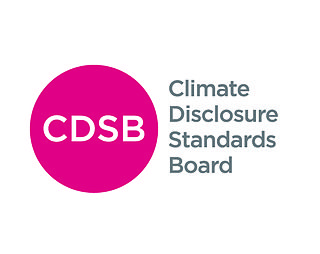
The U.S. Securities and Exchange Commission (SEC) is an independent agency of the United States federal government. The SEC holds primary responsibility for enforcing the federal securities laws, proposing securities rules, and regulating the securities industry, the nation's stock and options exchanges, and other activities and organizations, including the electronic securities markets in the United States.

The Sarbanes-Oxley Act of 2002, also known as the "Public Company Accounting Reform and Investor Protection Act" and "Corporate and Auditing Accountability, Responsibility, and Transparency Act" and more commonly called Sarbanes–Oxley, Sarbox or SOX, is a United States federal law that set new or expanded requirements for all U.S. public company boards, management and public accounting firms. A number of provisions of the Act also apply to privately held companies, such as the willful destruction of evidence to impede a federal investigation.

The Securities Act of 1933, also known as the 1933 Act, the Securities Act, the Truth in Securities Act, the Federal Securities Act, and the '33 Act, was enacted by the United States Congress on May 27, 1933, during the Great Depression, after the stock market crash of 1929. Legislated pursuant to the Interstate Commerce Clause of the Constitution, it requires every offer or sale of securities that uses the means and instrumentalities of interstate commerce to be registered with the SEC pursuant to the 1933 Act, unless an exemption from registration exists under the law. The term "means and instrumentalities of interstate commerce" is extremely broad and it is virtually impossible to avoid the operation of the statute by attempting to offer or sell a security without using an "instrumentality" of interstate commerce. Any use of a telephone, for example, or the mails would probably be enough to subject the transaction to the statute.

The Securities Exchange Act of 1934 is a law governing the secondary trading of securities in the United States of America. A landmark of wide-ranging legislation, the Act of '34 and related statutes form the basis of regulation of the financial markets and their participants in the United States. The 1934 Act also established the Securities and Exchange Commission (SEC), the agency primarily responsible for enforcement of United States federal securities law.
In a U.S. publicly traded company, an audit committee is an operating committee of the board of directors charged with oversight of financial reporting and disclosure. Committee members are drawn from members of the company's board of directors, with a Chairperson selected from among the committee members. A qualifying audit committee is required for a U.S. publicly traded company to be listed on a stock exchange. Audit committees are typically empowered to acquire the consulting resources and expertise deemed necessary to perform their responsibilities.

An annual report is a comprehensive report on a company's activities throughout the preceding year. Annual reports are intended to give shareholders and other interested people information about the company's activities and financial performance. They may be considered as grey literature. Most jurisdictions require companies to prepare and disclose annual reports, and many require the annual report to be filed at the company's registry. Companies listed on a stock exchange are also required to report at more frequent intervals.

OTC Markets Group is an American financial market providing price and liquidity information for almost 10,000 over-the-counter (OTC) securities. The group has its headquarters in New York City. OTC-traded securities are organized into three markets to inform investors of opportunities and risks: OTCQX, OTCQB and Pink.

The Fair and Accurate Credit Transactions Act of 2003 is a United States federal law, passed by the United States Congress on November 22, 2003, and signed by President George W. Bush on December 4, 2003, as an amendment to the Fair Credit Reporting Act. The act allows consumers to request and obtain a free credit report once every twelve months from each of the three nationwide consumer credit reporting companies. In cooperation with the Federal Trade Commission, the three major credit reporting agencies set up the web site AnnualCreditReport.com to provide free access to annual credit reports.
In business and accounting, information technology controls are specific activities performed by persons or systems designed to ensure that business objectives are met. They are a subset of an enterprise's internal control. IT control objectives relate to the confidentiality, integrity, and availability of data and the overall management of the IT function of the business enterprise. IT controls are often described in two categories: IT general controls (ITGC) and IT application controls. ITGC include controls over the Information Technology (IT) environment, computer operations, access to programs and data, program development and program changes. IT application controls refer to transaction processing controls, sometimes called "input-processing-output" controls. Information technology controls have been given increased prominence in corporations listed in the United States by the Sarbanes-Oxley Act. The COBIT Framework is a widely used framework promulgated by the IT Governance Institute, which defines a variety of ITGC and application control objectives and recommended evaluation approaches. IT departments in organizations are often led by a Chief Information Officer (CIO), who is responsible for ensuring effective information technology controls are utilized.

A prospectus, in finance, is a disclosure document that describes a financial security for potential buyers. It commonly provides investors with material information about mutual funds, stocks, bonds and other investments, such as a description of the company's business, financial statements, biographies of officers and directors, detailed information about their compensation, any litigation that is taking place, a list of material properties and any other material information. In the context of an individual securities offering, such as an initial public offering, a prospectus is distributed by underwriters or brokerages to potential investors. Today, prospectuses are most widely distributed through websites such as EDGAR and its equivalents in other countries.
A company secretary is a senior position in a private sector company or public sector organisation. In large American and Canadian publicly-listed corporations, a company secretary is typically named a corporate secretary or secretary. The company secretary is responsible for the efficient administration of a company, particularly with regard to ensuring compliance with statutory and regulatory requirements and for ensuring that decisions of the board of directors are implemented.

The Bourse Régionale des Valeurs Mobilières SA or BRVM, is a regional stock exchange serving the following west African countries:
The Securities Fraud Deterrence and Investor Restitution Act was H.R. 2179 and is a bill currently on the Union Calendar.
The UK Corporate Governance code is a part of UK company law with a set of principles of good corporate governance aimed at companies listed on the London Stock Exchange. It is overseen by the Financial Reporting Council and its importance derives from the Financial Conduct Authority's Listing Rules. The Listing Rules themselves are given statutory authority under the Financial Services and Markets Act 2000 and require that public listed companies disclose how they have complied with the code, and explain where they have not applied the code – in what the code refers to as 'comply or explain'. Private companies are also encouraged to conform; however there is no requirement for disclosure of compliance in private company accounts. The Code adopts a principles-based approach in the sense that it provides general guidelines of best practice. This contrasts with a rules-based approach which rigidly defines exact provisions that must be adhered to. In 2017, it was announced that the Financial Reporting Council would amend the Code to require companies to "comply or explain" with a requirement to have elected employee representatives on company boards.
Regulation S-K is a prescribed regulation under the US Securities Act of 1933 that lays out reporting requirements for various SEC filings used by public companies. Companies are also often called issuers, filers or registrants.
The Directors' Report is a document produced by the board of directors under the requirements of INDIAN company law, which details the state of the company and its compliance with a set of financial, accounting and corporate social responsibility standards.

The Investor Protections and Improvements to the Regulation of Securities is a United States Act of Congress, which forms Title IX, sections 901 to 991 of the much broader and larger Dodd-Frank Wall Street Reform and Consumer Protection Act of 2010. Its main purpose is to revise the powers and structure of the Securities and Exchange Commission, credit rating organizations, and the relationships between customers and broker-dealers or investment advisers. This title calls for various studies and reports from the SEC and Government Accountability Office (GAO). This title contains nine subtitles.
The Transparency Directive or Directive 2004/109/EC is an EU Directive of 2004. In 2004, it was a revision of the Directive 2001/34/EC. The Transparency Directive was amended in 2013 by the Transparency Directive Amending Directive.

The Climate Disclosure Standards Board (CDSB) is a non-profit organization working to provide material information for investors and financial markets through the integration of climate change-related information into mainstream financial reporting. CDSB operates on the premise that investors and financial institutions can make better and informed decisions if companies are open, transparent and analyse the risks and opportunities associated with climate change-related information. To this end, CDSB acts as a forum for collaboration on how existing standards and practices can be used to link financial and climate change-related information using its Framework for reporting environmental information, natural capital and associated business impacts.

India's National Voluntary Guidelines on Social, Environmental and Economic Responsibilities of Business (NVGs) were released by the Ministry of Corporate Affairs (MCA) in July 2011 by Mr. Murli Deora, the former Honourable Minister for Corporate Affairs. The national framework on Business Responsibility is essentially a set of nine principles that offer businesses an Indian understanding and approach to inculcating responsible business conduct.








